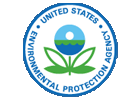FOR IMMEDIATE RELEASE: June 7, 2013
Contacts:
Janette Brimmer, Earthjustice, 206-343-7340 ext. 1029
Brett VandenHeuvel, Columbia Riverkeeper, 503-348-2436
Mark Riskedahl, Northwest Environmental Defense Center, 503-768-6673
John Felton, Rosemere Neighborhood Association, 360- 993-4939
Federal Judge Rules County’s Polluted Runoff Standards Illegal
Taxpayer subsidy, fish-killing loopholes scrapped by judge as violations to clean water laws
Tacoma, WA—In a major decision, a federal judge ruled Clark County’s weak development standards that allow too much polluted runoff, violate clean water laws. The ruling, announced late today (Friday) signals an end to the county’s long-time failure to protect rivers, streams and salmon threatened with extinction.
“This is a great day for counties and cities in our state that are working hard to clean up polluted waterways, “said Janette Brimmer, attorney for Earthjustice. “We applaud the ruling for recognizing that everyone needs to do their share to protect our precious streams, rivers and salmon and that Clark County, like everyone else, must follow the law.”
Rosemere Neighborhood Association, Columbia Riverkeeper, and the Northwest Environmental Defense Center, represented by Earthjustice, challenged Clark County’s adoption of development standards that were too weak to prevent significant harm to the county’s already-stressed rivers and streams.
Today’s decision by, U.S. District Judge Ronald B. Leighton, concludes Clark County was violating its Phase 1 Permit between August 2008 and December 2011. Judge Leighton had issued an injunction against the county at the end of December 2011, requiring the county to comply with its permit going forward while the case was pending. The county has been operating under that injunction since that time.
Under the federal Clean Water Act, local governments must operate a stormwater system that complies with a National Pollution Discharge Elimination System permit and limits runoff of stormwater pollutants from new development and redevelopment. The standards in the permit required Clark County to limit runoff from larger storms so that the stormwater runoff was more like natural conditions
“We are hopeful that Clark County will now stop fighting and see that controlling pollutants in stormwater, and fixing the damage that was caused by those three years, will be a positive step that is good for Columbia River salmon and good for the community,” said Brett VandenHeuvel , Executive Director of Columbia Riverkeeper.
“We are elated that our efforts to protect the environment have yielded such a positive result,” said John Felton, Chairman, Rosemere Neighborhood Association.
Polluted runoff, or stormwater, is a toxic stew of metals, oil, grease, pesticide, herbicides, bacteria and nutrients. When it rains, the toxic runoff drains off roofs and streets in amounts that seriously degrade water quality and kill marine life.
The county and an association of developers appealed a January 2011 ruling of the state Pollution Control Hearings Board (PCHB) that the county is out of compliance with federal clean water laws and shifted the burden of protecting clean water from developers to local taxpayers.
##



















![Washington State Water Quality Assessment [303(d)] Washington State Department of Ecology](http://www.rosemerena.org/home/wp-content/uploads/2009/03/ecy_logo.gif)

